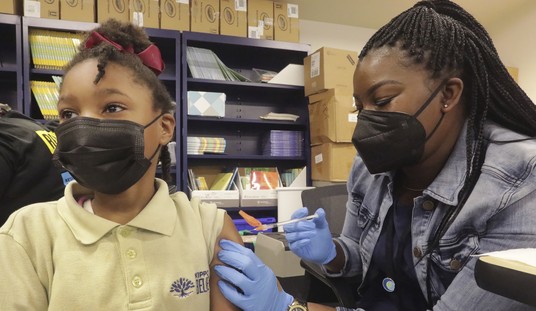What a night to be a Republican.
Below is the cheat sheet I posted Sunday, re-sorted from what I thought was most likely to flip to the GOP, to least likely, and updated with wins and losses. To summarize, I predicted that Republicans would gain a net of 63 seats, +/-3; by my count, Republicans have won 66 seats, have lost three, and may nab two more Democrat-held seats that are currently too-close-to-call (“2C2C”). So, 63 seats, with two potentially waiting in the wings. Analysis follows.
Republicans outperformed my predictions in Illinois, Texas, and Minnesota; they underperformed in Arizona, Kentucky, Oregon, and Georgia. So, a slight update is in order to accurately describe today’s state-by-state House delegation gains and losses, as compared to 2004. We’ve moved from this net outcome possibility: (red- net GOP gain over 2004, blue- net GOP loss, gray – no change)

To this:

The wins are still deep, and still likely to be enduring (as I’ve argued before.) Strong wins across the board, with lots of welcome surprises not demonstrated in this map. (For instance, Illinois now has a majority GOP delegation. Arizona’s delegation is now by my count five Republicans to three Democrats. Etc.) Depending on how the House race in CA-11 turns out, even California could turn a redder hue before this year’s map is complete.
The Republicans may not have done as well as we’d hoped in the Senate, but it’s these races in the House and those at the state level that are really the most destructive for Democrats. From Allahpundit’s post, a House Democrat close to Madam (for now) Speaker:
“I think it’s going to take us a while to get beyond this,” said a House Democrat close to Pelosi. “10 years, maybe 20 years. I don’t know if we’ll get back the majority while I’m here.”…
When the toll inflicted on Democrats in a state legislature is best described as a “bloodbath,” yes, there’s long term damage involved here. Erick Erickson notes:
There will be 18 states subject to reapportionment. The Republicans will control a majority of those — at least ten and maybe a dozen or more. More significantly, a minimum of seventeen state legislative houses have flipped to the Republican Party.
The North Carolina Legislature is Republican for the first time since 1870. Yes, that is Eighteen Seventy.
The Alabama Legislature is Republican for the first time since 1876.
For those saying this is nothing because it is the South, consider these:
The entire Wisconsin and New Hampshire legislatures have flipped to the GOP by wide margins.
The State Houses in Indiana, Pennsylvania, Michigan, Ohio, Iowa, Montana, and Colorado flipped to the GOP.
The Maine and Minnesota Senates flipped to the GOP.
Go to the link for the rest.
Can Republicans mess this windfall up? Sure. Do I assume they will? No. I think it is clear that Democrats have emerged as an urban, bi-coastal regional party whose influence has been decimated in the interior, and which will soon to be subjected to more damage when Census reapportionment and redistricting begins. The Blue Dogs have been vanquished. The San Francisco-style Democrat has prevailed, resulting in a Democrat caucus probably more liberal and narrow than it ever has been. A New York Times screenshot of the current House landscape helps to re-emphasize this point.
The Democratic Party is not dead and should not be taken lightly. It is undoubtedly alive. It’s just not altogether “well,” and probably won’t be for some time.
Update: So how many legislatures does the GOP control outright? Click here or the image for the breakdown.

This post was promoted from GreenRoom to HotAir.com.
To see the comments on the original post, look here.









Join the conversation as a VIP Member